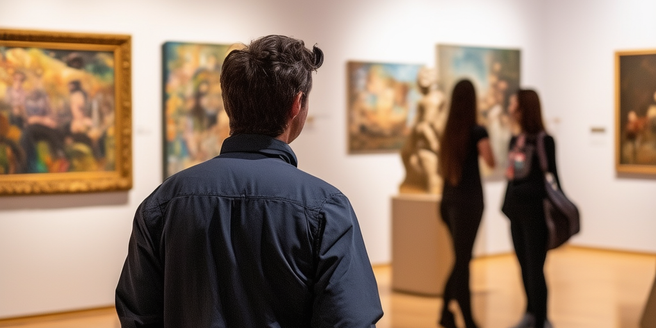
The Benefits of Cultural Tours for Team Building
Cultural tours offer a unique and engaging way to enhance team cohesion and morale. By stepping outside the confines of the office and exploring new environments, employees can break down barriers and build stronger interpersonal connections. These experiences foster a sense of unity and mutual understanding, crucial for effective teamwork. Additionally, they provide team members with the opportunity to see each other in a different light, which can lead to more genuine relationships. This shift in perspective often reveals hidden strengths and talents among colleagues. Furthermore, cultural activities can promote creativity and problem-solving skills by exposing team members to diverse perspectives and ideas. Ultimately, cultural tours can be a transformative element of team building, leading to more cohesive and dynamic teams.
Choosing the Right Cultural Activities for Your Team
Selecting the appropriate cultural activities for your team is essential to maximize engagement and benefits. Consider the interests and backgrounds of team members to ensure inclusivity and relevance. Activities such as historical site visits, art workshops, and local cuisine tastings can offer diverse yet meaningful experiences. Don’t forget to allocate time for team reflections and discussions afterward. It is also important to account for the varying accessibility needs of different team members. Collaborating with cultural experts or local guides can provide deeper insights and enhance the overall experience. By carefully choosing activities that resonate with your team, you ensure a rich, educational, and enjoyable experience that everyone can appreciate and learn from.
Seamlessly Incorporating Cultural Tours into Retreat Schedules
Incorporating cultural tours into retreat schedules without disrupting the flow of events requires careful planning. Start by identifying key goals of the retreat and aligning cultural activities with these objectives. Create a balanced itinerary that allows for immersive experiences without overwhelming participants. It’s important to consider the interests and backgrounds of the participants when planning these activities. For instance, a culinary tour might be a great fit for food enthusiasts. Consider splitting the group into smaller teams for certain activities to foster deeper interactions. Flexibility is key; remain open to adjusting the schedule based on participant feedback and engagement levels. With thoughtful preparation, cultural tours can be seamlessly integrated into retreats, enriching the overall experience.
Empowering Employees Through Cultural Experiences
Cultural experiences have the potential to empower employees by broadening their horizons and enhancing their cultural competence. Exposure to different customs, traditions, and ways of life fosters empathy, open-mindedness, and a global perspective. These qualities are invaluable in today’s multicultural work environment. Actively seeking out such experiences can lead to a deeper understanding of global issues and social dynamics. Engaging in cultural exchange programs can also provide unique perspectives that further enrich personal and professional development. By participating in cultural tours, employees can develop a greater appreciation for diversity and inclusivity, which can translate into more respectful and effective workplace interactions. Empowering employees in this way not only contributes to personal growth but also strengthens the overall company culture.
Real-life Success Stories of Cultural Integration in Retreats
Many companies have successfully integrated cultural tours into their professional retreats with noteworthy outcomes. For instance, a tech firm’s retreat in Japan included tea ceremonies and visits to historical temples, resulting in enhanced team collaboration and cultural awareness. Another example is a marketing company’s retreat in Spain, which involved Flamenco dance lessons and local market tours. Participants reported increased creativity and camaraderie. Even small businesses have found value in incorporating local cultural experiences into their retreats. Studies suggest that these activities can also reduce stress and increase overall job satisfaction. These real-life success stories demonstrate how thoughtfully planned cultural activities can significantly enrich professional retreats, leading to long-lasting positive impacts on team dynamics and company culture.
